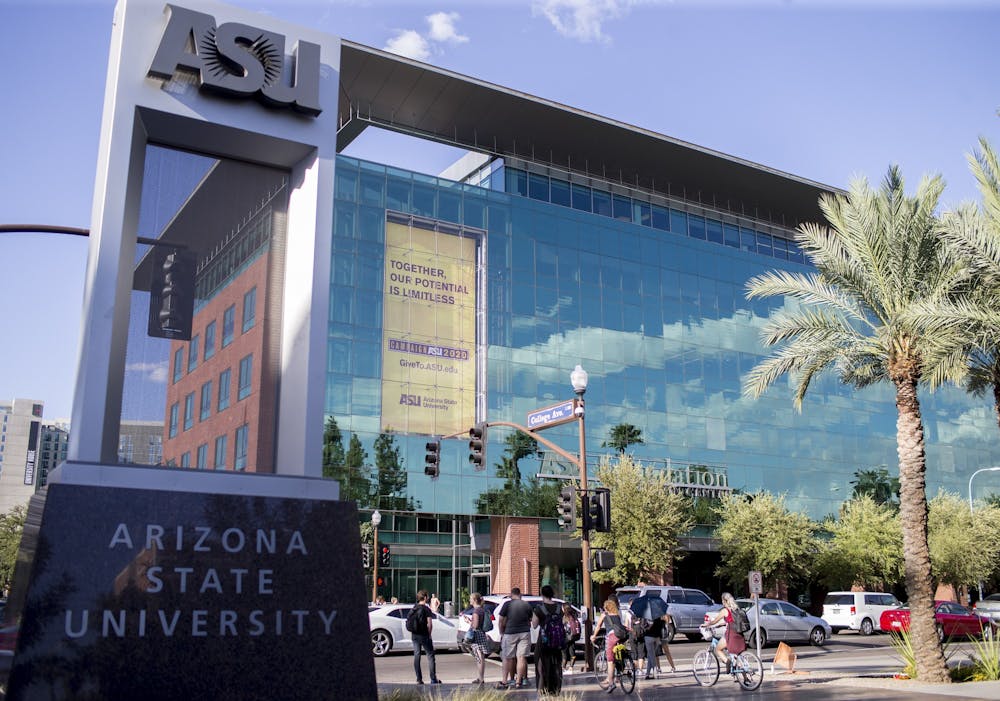ASU and 37 other educational institutions have teamed up to launch the Taskforce on Higher Education and Opportunity to provide more resources and support for 2.5 million students in universities and community colleges from all across the country, ranging from the Georgia Institute of Technology to the University of California, Davis.
The task force, which launched this March, is focusing on three goals: preparing vulnerable students of graduating classes 2020-2023 to navigate the post-pandemic career world, supporting local communities in recovering and reimagining the future of higher education.
Luke Tate, managing director of the Office of Applied Innovation, which helps ASU with the task force, said when the pandemic started, the participating university presidents had frequent conversations about the importance of partnering and working together to meet student needs.
"We are hopeful that (the task force) calls attention for the business community to respond to the pandemic by opening up more opportunities for those students who were already disadvantaged prior to the pandemic, who have also been hit hardest because of it and seen their path to employment made more difficult," Tate said.
In addition to working with educational institutions, the task force consists of partners, such as McKinsey and Company and Strada Impact, Strada Education Network, to provide labor marketing analytics and financial support for specific programs.
"One of the ideas that we raised to McKinsey, and to the other college and university presidents, is whether it would be possible for those with ties to the business community to identify new internship opportunities for those groups of students both at ASU and at other universities," Tate said.
Each of the universities has developed its own programs and initiatives for the task force. One program encourages college students who dropped out to finish their college degrees and another focuses on providing funding for students with unpaid internships.
ASU's initiative, which launched the Fall 2020 semester, is the Working Learners Program, an initiative of the University College. The program offers courses and mentorship opportunities to prepare students for finding careers.
"The Working Learners Program redesigns student employment across the university, understanding that work and learning realms are fundamentally connected, and that student experience in applying what they’ve learned to real-world problems is a top indicator of workplace success," the task force's website says of the program.
With the skills students gain, students will develop and maintain a digital portfolio to save their progress and work with their mentors and lessons from their coursework.
"Working Learners Program is one that really stuck out as something that could target this goal one of supporting our students to achieve economic security and success because it's really about how do you think about your entire university experience in your classes and in your work in a holistic way," said Michelle Sullivan Govani, director of strategy and partnerships at the Office of Applied Innovation.
Sullivan Govani said the program covers important skills, such as intercultural communication, which are essential for the 21st-century workforce.
The task force members do not meet regularly, but it offers university presidents and staff the opportunity to meet and collaborate with each other, said Andrew Nelson, senior director for shared prosperity in the Office of Applied Innovation.
"It's still a wonderful thing to be able to hear what someone in New York is doing to help meet the needs of graduating high school seniors in New York City and how we might be able to take those ideas and apply them out here in the desert," Nelson said. "I think (it's) a fantastic opportunity for ASU to learn from our peers."
One key for the task force, Nelson said, is it will allow ASU to share and gain information from others through the partnerships, benefiting the institutions, their students and others.
"We are sharing data with our peer institutions and encouraging them through the task force to make sure that they're meeting the needs of all workers in their community, not just workers who already have a bachelor's degree," Nelson said.
Reach the reporter at anatar12@asu.edu or follow @AnushaNat1 on Twitter.
Like The State Press on Facebook and follow @statepress on Twitter.
Continue supporting student journalism and donate to The State Press today.





